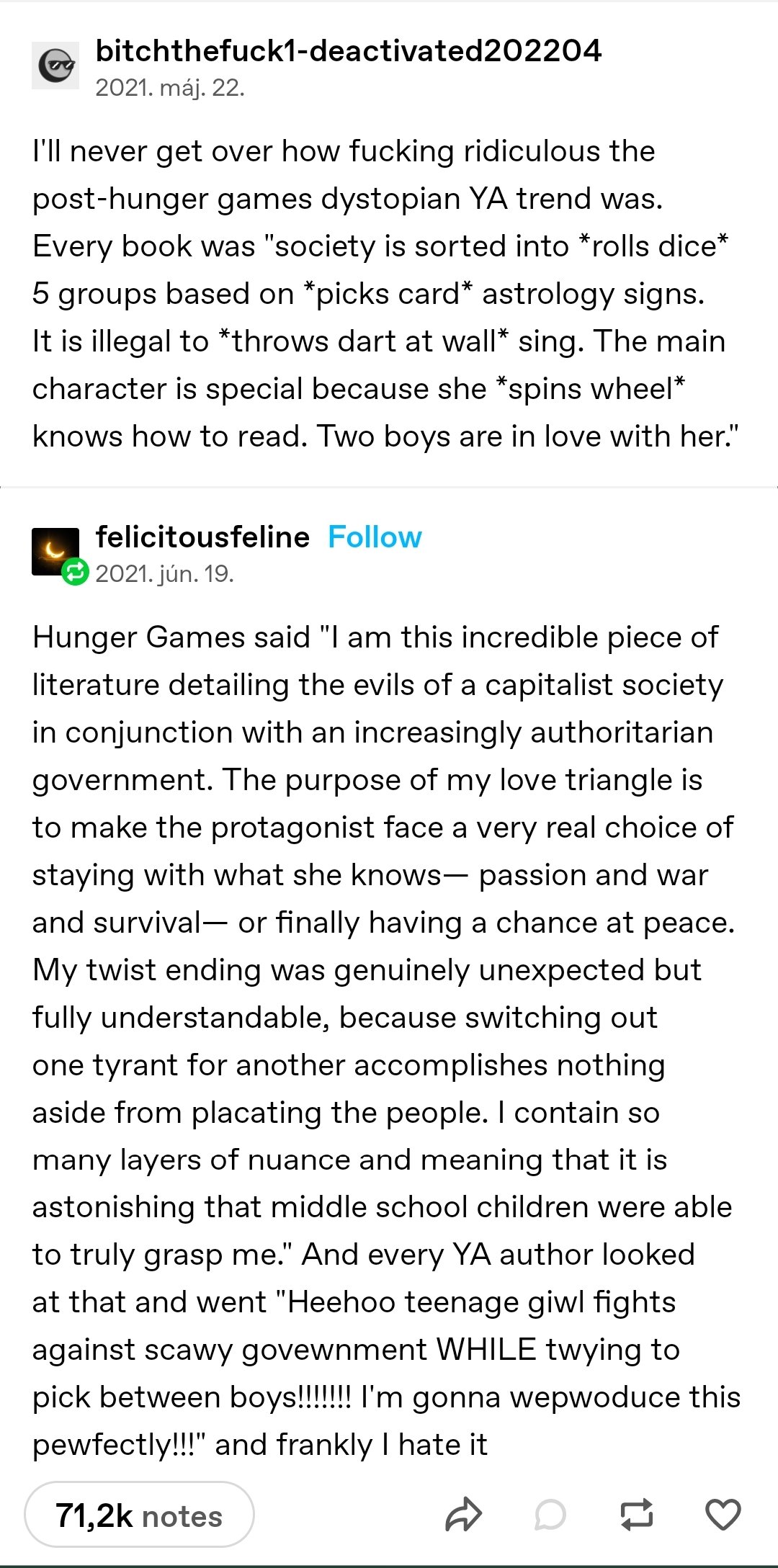this post was submitted on 03 Jan 2024
393 points (93.8% liked)
tumblr
3372 readers
153 users here now
Welcome to /c/tumblr, a place for all your tumblr screenshots and news.
Our Rules:
-
Keep it civil. We're all people here. Be respectful to one another.
-
No sexism, racism, homophobia, transphobia or any other flavor of bigotry. I should not need to explain this one.
-
Must be tumblr related. This one is kind of a given.
-
Try not to repost anything posted within the past month. Beyond that, go for it. Not everyone is on every site all the time.
-
No unnecessary negativity. Just because you don't like a thing doesn't mean that you need to spend the entire comment section complaining about said thing. Just downvote and move on.
Sister Communities:
-
/c/TenForward@lemmy.world - Star Trek chat, memes and shitposts
-
/c/Memes@lemmy.world - General memes
founded 1 year ago
MODERATORS
you are viewing a single comment's thread
view the rest of the comments
view the rest of the comments

Ursula Le Guin has some very vocal criticisms of the mentioned commodified and shackled copies and ideas. One part I read in an English translation preface of Roadside Picnic by Strugatsky Brothers:
"Science fiction lends itself readily to imaginative subversion of any status quo. Bureaucrats and politicians, who can’t afford to cultivate their imaginations, tend to assume it’s all ray-guns and nonsense, good for children. A writer may have to be as blatantly critical of utopia as Zamyatin in We to bring the censor down upon him. The Strugatsky brothers were not blatant, and never (to my limited knowledge) directly critical of their government’s policies. What they did, which I found most admirable then and still do now, was to write as if they were indifferent to ideology—something many of us writers in the Western democracies had a hard time doing. They wrote as free men write."
The sentence in bold letters, which I formatted as such, is the exact part that is very much needed in any form of entertainment in the last few decades. The ideology that can be ignored can come in form of not only state or economical one, but also very formidably as a cultural one. The connect with the post, the escape from macho men protagonist to vulnerable but determinant teen girls in the movies, series, games and books was already a regurgitated reflection of culture shift and political ideology change that was trending decades before. Having every piece of soft, lovable, darling resistance to oppression stories of made up straight evil men and refrigerator old women technological dystopias has become so ubiquitous that it is either this or time traveling/parallel worlds, intelligent machine"technobabble" stories since 2010s, at best. There is almost no movement to break out of this sanitized, recycled, endearment-abusing fiction, to the degree that even the fictionary art films devolved into templates with same close-up shots for tearjerk or stress imposing. Nothing main story is going beyond the boundaries of cultural ideologies. If we are lucky, there are a couple side characters sprinkled in, that act as wildcard some writers can introduce without having to make them conform to all desirable or relatable personality in every situation.
Rough, wild, inconsistent, slightly changing, unexplained, disagreeable, confusing and incoherent characters and events are all parts of life, too. Imagining these can still yield a whole lot of novel ideas, entertainment and movement, and give the creative arts the meaning of its name.
Unrelated completely except for the fact that Le Guin helped me notice something – in the way that a fish might eventually notice water – when she said that: